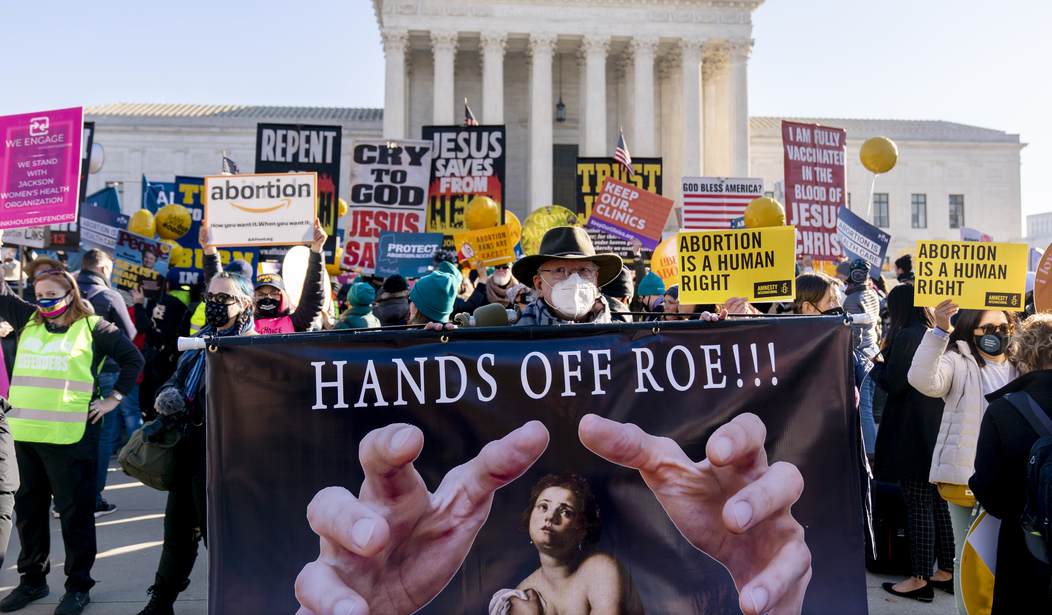Earlier this week, I wrote a column about the status of Kentucky being, at least at that time, abortion-free. Kentucky's two abortion facilities were ceasing to perform abortions since they were not complying with a law that recently went effect. In addition to banning almost all abortions past 15 weeks, the law regulated the procedure in various ways. In a few short days, Kentucky has gone from making history as the first state to not have abortion since 1973's Roe v. Wade, to being stopped by a judge, at least for the time being. On Thursday, U.S. District Judge Rebecca Grady Jennings had issued a temporary restraining order (TRO) against the law.
The law also has provisions requiring abortion providers to maintain local hospital privileges in case a complication arises. It also regulates the chemical abortion method, so that only a qualified physician can provide it to a pregnant woman, with that method also having to be reported within three days of those drugs being dispensed. There are new reporting requirements, as well as annual audits to ensure compliance. The abortion facility must also cremate or bury the aborted fetal remains, rather than treat them as medical waste.
The abortion facilities, Planned Parenthood and EMW Women's Surgical Center, claimed that they could not comply with certain provisions of the law immediately, or even potentially at all.
As Laura Kusisto and Jennifer Calfas with The Wall Street Journal noted last week:
Proponents of the bill say it contains common-sense requirements to ensure the dignity of fetal remains and protect women’s health by, for example, more closely tracking potential complications from medication abortions. Addia Wuchner, executive director of Kentucky Right to Life and a former Kentucky legislator, said politicians have spent years crafting the regulations and working with groups to ensure they can be implemented.
“There’s no wording in there that would totally restrict or ban abortion,” Ms. Wucher said.
Providers said there is no way for them to comply with the law given its immediate effective date, including because they said some of the additional forms they need to file don’t exist yet.
They said it would be difficult to comply with the law even long term because some of the information they are required to provide on the forms would violate patient privacy and they don’t think they could find funeral homes who would work with them to dispose of remains.
Recommended
Although Planned Parenthood and EMW Women's Surgical Center, the latter which is represented by the ACLU, celebrated the ruling, it is only temporary, as Deborah Yetter noted in her reporting for the Louisville Courier Journal. Judge Jennings, who was nominated by former President Donald Trump, noted that her order is not a ruling on the constitutionality of the law.
You heard it right, Kentucky. Abortion is still legal in your state and we're fighting to keep it that way. https://t.co/xSCFUBYrOG
— Alexis McGill Johnson (@alexismcgill) April 21, 2022
VICTORY: A court has temporarily blocked Kentucky's latest attempts to effectively ban abortion within the state.
— ACLU (@ACLU) April 21, 2022
We’ll say it again: Abortion is our right.
We'll keep fighting to ensure this law stays blocked and everyone can get the abortion care they need.
Judge Jennings will consider the constitutionality of the law at a hearing to grant a preliminary injunction blocking such enforcement before the TRO expires in 14 days.
While the lawsuit from Planned Parenthood affected both facilities, EMW Women's Surgical Center and the ACLU are waiting on a ruling from U.S. District Judge David Hale, who was nominated by former President Barack Obama.
Kentucky's Attorney General Daniel Cameron, an outspoken pro-life Republican, tweeted his disappointment with the ruling, also emphasizing that the law " is constitutional, and we look forward to continuing to defend it."
We are disappointed that the court chose to temporarily halt enforcement of HB 3. This law is constitutional, and we look forward to continuing to defend it.https://t.co/aLlSJ8wZYi
— Attorney General Daniel Cameron (@kyoag) April 21, 2022
The major fight is still to come, though, and not just because Judge Hale has yet to issue his ruling, or because Judge Jennings will rule on the constitutionality of the Kentucky law at a later time.
The U.S. Supreme Court is expected to rule in the coming months on Dobbs v. Jackson which will decide the constitutionality of previability abortion bans through Mississippi's own 15-week ban. After the Court heard oral arguments last December, both sides of the abortion issue expect the Court to overturn or at least weaken Roe, which will then leave it to state legislatures to decide their abortion laws.
The reality is, our constitutional right to abortion is in crisis, and access to care is growing further out of reach. The time to fight for reproductive health and rights is now. Join us: https://t.co/ku5mCNii8z #BansOffOurBodies pic.twitter.com/6JpAJ5ZqnL
— Planned Parenthood (@PPFA) April 19, 2022
Abortion remains legal in Kentucky and you can once again access that care here.
— ACLU of Kentucky (@ACLUofKY) April 21, 2022
We will never stop fighting for your right to do exactly that because the government should never have the authority to force a person to remain pregnant against their will.
While pro-life activists remain hopeful and optimistic, the pro-abortion movement is in panic mode. Indeed, Planned Parenthood and the ACLU have tweeted warnings, recently and with pinned tweets, about the fate of legalized abortion on demand in all 50 states.























Join the conversation as a VIP Member